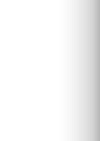


Ghaderpour S, Ahmadifard N, Agh N, Vahabzadeh Z, Estevez A. Effect of feeding with a mixture of Nanochloropsis and Isocrysis microalgae enriched with zinc element on mineral composition and growth factors of saline rotifers Brachionus plicatilis. JFST 2021; 10 (3) :286-300
URL:
http://jfst.modares.ac.ir/article-6-51514-en.html
1- Department of Fisheries, Faculty of Agriculture and Natural Resources, Urmia University
2- Department of Fisheries, Faculty of Natural Resources, Urmia University, Tel: +9832770489, P.O. Box: 57153-165 , n.ahmadifard@urmia.ac.ir
3- Department of Artemia, Artemia & Aquaculture Research Institute, Urmia University
4- Department of Clinical Biochemistry, Faculty of Medicine, Kurdistan University of Medical Sciences
5- Institute of Agrifood Research and Technology (IRTA), 43540 Tarragona, Spain
Abstract: (3186 Views)
Despite the positive role of rotifers in many hatcheries for feeding the early stages of aquatic larvae, the lower mineral content of zinc (Zn) is one of the disadvantages of rotifer compared to copepods. Therefore, it is necessary to increase its amounts through enrichment. For this purpose, in the present study, a combination of algae Isochrysis aff. galbana and Nannochloropsis oculata were enriched with zinc sulfate for 1 and 3 hours. Due to obtaining better results in 1 hour, its effects on the growth and enrichment of rotifer were surveyed. The 1: 1 alga composition was enriched with zinc sulfate at concentrations (45, 90, and 135 mg/l). The highest amount of zinc was observed in the mixed algal enriched with 90 mg/l for 1 h, which had the highest copper amount and there was no significant difference with the control group. Also, the manganese amount was higher than the other treatments except for the control group. After feeding the rotifers with enriched algae for 1 hour, the best treatment was 45 mg/l, which also contained the second level of zinc and the first level of manganese, copper, potassium, and sodium. On the other hand, this treatment had the highest number of eggs on the peak day of reproduction treatments (third day) and its population density in the last days was not significantly different from the control group (p <0.05). Zn-enriched rotifers can be used to feed marine fish to meet the nutritional needs of aquatic larvae.
Article Type:
Original Research |
Subject:
Non food Aquaculture Received: 2021/04/9 | Published: 2021/08/20
Send email to the article author

















































